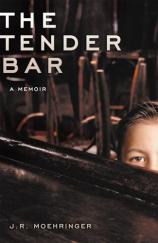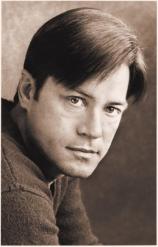Reading Group Guide
Discussion Questions
The Tender Bar: A Memoir

1. In the memoir, J.R. has a difficult childhood and family circumstances in many respects, but there are also many positive elements to his childhood, including a loving mother and grandmother. Compare Moehringer's portrait of childhood to other memoirs you've read.
2. There are various portrayals of "good" and "bad" men in the memoir. What are the different definitions of goodness in men?
3. Alcohol permeates the memoir. In what ways is it both a positive and a negative factor in the lives of the various characters?
4. J.R.'s mother is deeply conflicted about her living circumstances. Do you think her experiences are representative of the struggles of many single mothers? Do you think she is a strong character? Did you admire her, or empathize with her?
5. J.R.'s grandmother is tremendously long suffering, verbally abused by both her husband and her son, and forced to put up with her husband's stinginess and philandering. Did you find her a sympathetic character? Did her dilemma feel familiar to you?
6. J.R.'s grandfather is terrible to his wife and children, and mostly terrible to his grandchildren. Yet he has occasional moments of greatness, such as at J.R.'s school breakfast. What do you think motivated J.R.'s grandfather? Did you find him likable?
7. J.R. and his mother spend a good bit of time during his childhood looking at other houses, and the ways that other people live. J.R. even peeks in livingroom windows. Consider the ways that such comparisons might be a positive or a negative influence.
8. J.R. grows up without a present father. How do you think his search for a masculine identity compares to that of men who grew up with fathers--good or bad--who were more present in their lives?
9. The men along the bar are depicted warts and all --- did you consider them positive role models? Which of the men was most appealing to you, and why?
10. At various points in his young adulthood, J.R. notices that the men in the bar have conflicting attitudes toward success in other men. What does this stem from? Was it familiar to you?
11. Sports and athletes are tremendously important in the memoir, particularly among the men --- athletes are admired and even deified, and games and matches are focal points of drama in the memoir and the experience of them can even become personal milestones. Consider the importance of sports in men's lives and relationships with each other.
12. Sidney is compared to Daisy in The Great Gatsby. In what other ways do characters and circumstances in The Tender Bar resemble that novel, particularly with respect to class and aspiration?
13. In what ways was J.R.'s enormous ambition a positive element in his life, and in what ways was it the source of pain? Is this inevitable?
14. At the end, J.R. suggests that Sidney wasn't wrong to have wondered about a young man who spent so much time in a bar. Did you find her sympathetic?
15. How did you feel about the epilogue, and the way that the events of the epilogue tied together the themes of the memoir? Did you feel resolution? Did you think J.R. had changed? In what ways?
16. Did you see yourself and any of your own experiences as a parent, child, man or woman in the memoir?
The Tender Bar: A Memoir
- Publication Date: August 31, 2005
- Genres: Nonfiction
- Hardcover: 384 pages
- Publisher: Hyperion
- ISBN-10: 1401300642
- ISBN-13: 9781401300647








